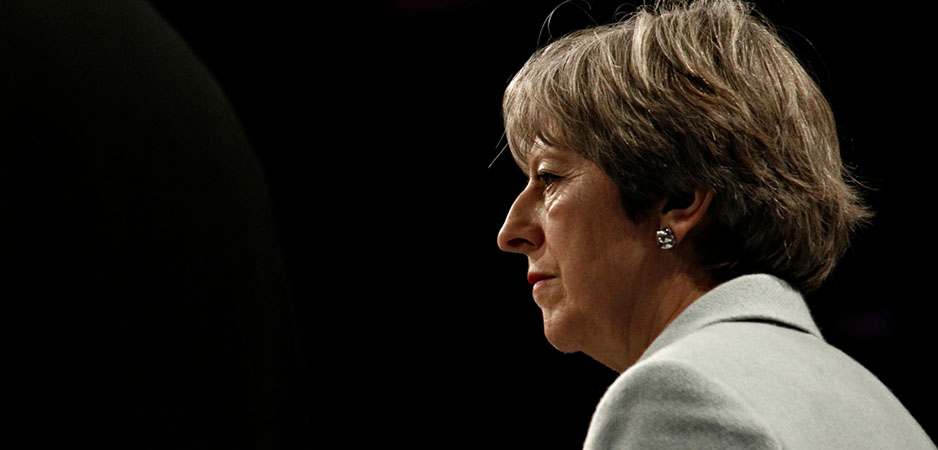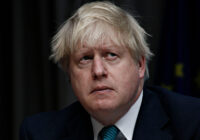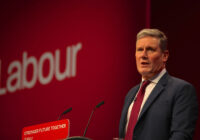Divorce is turning out to be more painful than marriage and might make the UK stay in the European Union.
These are days of high drama. William Shakespeare, the prince of playwrights, could not have penned it better. On January 15, British Prime Minister Theresa May suffered a historic defeat in the House of Commons. Never before had a sitting government suffered such a beating.
Members of Parliament voted by 432 to 202, a margin of 230, to reject May’s deal with the European Union. A striking 118 MPs from both the Leave and Remain wings of the Conservative Party voted against their own leader. For some, it did not go far enough. For others, it went too far.
Emotions ran high. So high that Jacob Rees-Mogg, the doctrinaire Brexiteer from the ruling Conservatives, hosted a champagne party to celebrate May’s Brexit defeat. Yet even Rees-Mogg was not willing to drown May in the Thames. He declared he would vote for the prime minister “even if she stands on her head at the dispatch box” because he “would not put a Marxist in 10 Downing Street.”
The Marxist in question, Labour Party leader Jeremy Corbyn, had tabled a vote of no confidence against May’s government. On January 16, a day after losing a historic vote, Prime Minister May narrowly won the vote of confidence by 325 to 306. Yet the deal she spent two years negotiating is now dead and buried six feet under. What happens next?
A CONSERVATIVE COUP?
In October 2018, political commentator Richard Coward published a classic on Fair Observer in which he laid out the “relentless logic about the whole Brexit saga.” For Coward, the UK faces a “miserable choice.” Either it can become a vassal state following EU rules with none of the privileges of membership, or it can set sail for splendid isolation on a wing and prayer.
Naturally, May’s Brexit deal steered away from the second option. Despite tough bargaining and a 585-page withdrawal agreement, this deal failed to please ardent Brexiteers. It ensured that the UK would abide by EU rules despite losing membership of its institutions. Even after Brexit became a fait accompli, EU rules would still apply to a range of issues, such as nuclear material to Parma ham.
Even as Brexiteers are celebrating, pro-European MPs are working to thwart what they see as an unmitigated disaster. The air is thick with rumors, plotting and suspicion. The Daily Telegraph, the notable Tory newspaper, has published Alistair Heath who argues that Tory Remainers have a duty not to destroy their party. The Economist, the sacred keeper of the great British liberal tradition, is talking about “the great rescrambling of Britain’s parties.”
Yet the surest guide to what might unfold is none other than Coward. The pro-European Conservatives are certainly turning against the idea of Brexit. As ever, Ken Clarke, the longest serving MP known affectionately as the father of the House, captures the zeitgeist best. Unlike Tony Blair, the forgotten fossil of British politics, Clarke admits to complacency during his time in power during the 1990s. He is talking about regulating “capitalism to prevent excess.” And he believes that this can best be done by staying in the European Union.
Clarke makes the argument that many, including this author, have made. The elites who have made hay when the sun has shined have forgotten those left behind. They did not benefit from boom time, but were left the bill for the crash. This daylight robbery, this capitalism on the upside and socialism on the downside for the financial class is fueling the rage of many who support Donald Trump or Brexit. Clarke holds that fighting them requires international cooperation, not national isolation. Now, his Europhile Tory disciples led by Oliver Letwin have picked up the gauntlet to fight for this cause. They are horrified by the thought of a no-deal Brexit, the probability of which has increased over the last few days.
Just as Coward predicted, a powerful cross-party alliance of MPs is emerging to fight against a no-deal Brexit that will most certainly ravage the fragile British economy. May herself is pushing for cross-party consensus after winning the no-confidence vote, but Corbyn is ruling out talks until she rules out a no-deal Brexit. This means that May is vulnerable on far too many flanks and Letwin’s Tory rebels are in a better position for a potential coup than much-reviled ardent Brexiteers like Rees-Mogg.
WILL THE UK STAY OR WILL IT GO?
The Economist talked about how parties are dividing into factions and factions into alliances. Just as the 1850s saw the emergence of the Conservatives and the Liberals, supporting and opposing Corn Laws respectively, the new divide in British politics is Remain and Leave. The former prefer order, structure and compromise. The latter prefer chaos, fluidity and intransigence. Furthermore, there is more talent on the backbenches in Parliament instead of the frontbench. The UK might have voted for Brexit in 2016, but no two people agree upon what that Brexit should look like.
The mothership of empire that played divide and rule has turned into a House of Babel. People still speak the English language in tongues unintelligible to others. At such a moment, European Council President Donald Tusk asked, “If a deal is impossible, and no-one wants no deal, then who will finally have the courage to say what the only positive solution is?”
Like Coward, Tusk suggests the only positive solution might be to stay in the European Union. That is most unpalatable to Brexiteers and their constituents. They do not want sovereignty to take the Eurostar to Brussels. Both May and Corbyn have promised to deliver Brexit, but neither is in any position to get it through the House of Commons. Like Trishanku, or the lost souls of Hades of ancient mythologies, the UK is caught between the promise of Brexit and an inability to attain it because no one really knows that that means.
Given the political paralysis in the UK, many are clamoring for another referendum to break the deadlock. Chuka Umunna of Labour, Vince Cable of the Liberal Democrats and, most importantly, Nicola Sturgeon of the Scottish Nationalist Party are among them. In fact, Sturgeon has ominously declared that “the interests of Scotland” have not even been “an afterthought for the UK Government and the Conservative Party” during “the entire disastrous Brexit process.”
It is important to remember that 62% of Scots voted to remain in the EU, while only 55.3% of them opted to stay in the UK. Hence, Sturgeon does not want the interests of Scotland to be at the mercy of a dysfunctional Westminster. Instead, she declares, “it is time to put the question of EU membership to the people again.”
As this author wrote in February 2016, the UK always had a troubled marriage with the EU. Since the days of Henry VIII, its center of gravity lay in its colonies. Europe was a cultural education for the upper-class boys who went on the Grand Tour. It turns out that Europe now exerts a stronger pull than most people estimated as during the Roman or Christian times.
The bitter wrangling over the Irish backstop clearly demonstrates Europe’s gravitational force. Therefore, the UK is finding divorce much more painful than marriage and, as a result, might turn against it.
The views expressed in this article are the author’s own and do not necessarily reflect Fair Observer’s editorial policy.
Support Fair Observer
We rely on your support for our independence, diversity and quality.
For more than 10 years, Fair Observer has been free, fair and independent. No billionaire owns us, no advertisers control us. We are a reader-supported nonprofit. Unlike many other publications, we keep our content free for readers regardless of where they live or whether they can afford to pay. We have no paywalls and no ads.
In the post-truth era of fake news, echo chambers and filter bubbles, we publish a plurality of perspectives from around the world. Anyone can publish with us, but everyone goes through a rigorous editorial process. So, you get fact-checked, well-reasoned content instead of noise.
We publish 2,500+ voices from 90+ countries. We also conduct education and training programs
on subjects ranging from digital media and journalism to writing and critical thinking. This
doesn’t come cheap. Servers, editors, trainers and web developers cost
money.
Please consider supporting us on a regular basis as a recurring donor or a
sustaining member.
Will you support FO’s journalism?
We rely on your support for our independence, diversity and quality.






